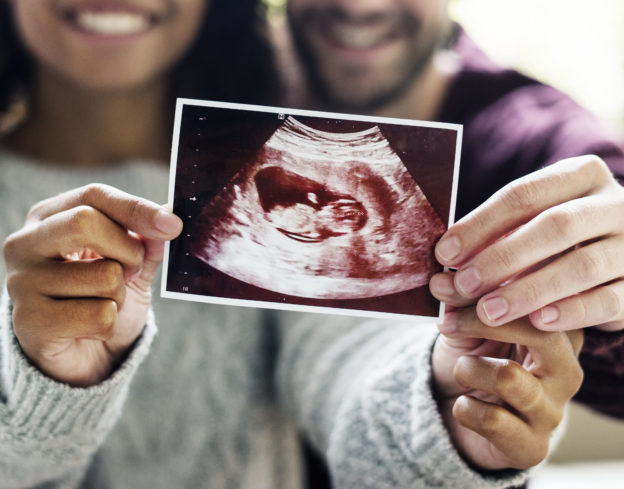Fertility preservation in males and females has become an increasingly popular concept for young adults who wish to delay parenthood for career aspirations, financial stability, or personal growth. As more individuals look to establish themselves in various aspects of their lives, the idea of starting a family often takes a backseat.
The challenge, however, is that age does play a significant role in fertility, and delaying parenthood may also mean a decrease in egg quality, reducing the chances of conceiving later on in life. This puts pressure and uncertainty on those who wish to start a family in the future.
Preserving fertility at a young age is a smart decision that allows individuals the chance to plan their future family while ensuring that egg quality and sperm quality are not compromised. Keep reading to learn more about fertility preservation.
Benefits of Early Fertility Preservation
When it comes to fertility preservation, waiting is the antithesis of strategy. Here’s why considering preserving your egg and/or sperm health early in your adult life is advantageous.
Preserve Egg Quality
You might be familiar with the concept of a “biological clock” and perhaps dismissive of it if family planning isn’t on your radar just yet. A woman’s reproductive journey starts with a large stockpile of eggs at birth, a reserve that continually diminishes over time. The quality of these eggs declines with age, leading to an increased risk of infertility and pregnancy complications.
The science is clear: the younger the eggs, the better the quality, which equates to higher success rates when it comes to in-vitro fertilization (IVF) and other assisted reproductive techniques.
Time Flexibility
By preserving your fertility at a young age, you’re not only storing quality but also time. This time is the modern-day luxury that allows a person to chase career ladders, traverse the globe, or delve into personal development without the nagging concern of an impending fertility deadline.
The time flexibility it provides is a double-edged sword— on one hand, it ensures that a person’s core values and ambitions are met, but on the other, it also protects their mental and emotional well-being from the often silent, but profound, anxieties that creep in with age.
Shield Against Medical Interventions
There’s also a remarkable psychological benefit to early fertility preservation. For those facing unexpected medical diagnoses, such as cancer, the emotional toll is immeasurable. When it comes to medical treatments that could impact fertility, such as chemotherapy, having prior fertility preservation can be a literal lifesaver for future family planning.
Fertility preservation in males and females is an insurance policy against the collateral damage of treatments necessary for a person’s overall health.
Exploring Your Options: A Future-Proofing Fertility Agenda
For both men and women, the path to preserving fertility is a consideration that requires understanding the options and implications involved.
Egg Freezing
Egg freezing, also known as oocyte or egg cryopreservation, is a well-established option for women. It involves extracting eggs, freezing them, and storing them for future use. The process allows women to take control of their reproductive destiny, offering the gift of time and a statistical advantage in future conception attempts.
Ovarian Tissue Cryopreservation
This method, though less common due to its specialized nature, is a groundbreaking procedure that involves removing and freezing a portion of ovarian tissue. Currently used primarily for women facing cancer treatments, it presents a fascinating potential for fertility restoration and is under ongoing research and development.
Sperm Freezing
For men, the process of fertility preservation is both simpler and highly effective. With sperm banking or semen cryopreservation, a man can preserve his fertility with minimally invasive procedures. It’s a straightforward collection and storing process offering men their own version of fertility reassurance.
Addressing the Concerns: Balancing Risks and Rewards
Like any medical procedure, there are factors to consider when it comes to fertility preservation at a young age. Success rates can vary, and the long-term effects of egg stimulation and freezing are still under scrutiny. The financial outlay can also be a hurdle, with preservation costs not always covered by insurance.
However, the message isn’t one of blanket enthusiasm but balanced consideration. The advancements in reproductive technology are constantly moving forward, and the risks are being weighed against the life-affirming benefits.
Ethical Touchpoints: The Conversation Beyond Biology
Fertility preservation isn’t just a medical journey. It’s deeply embedded in personal values, cultural norms, and ethical considerations. As we pave paths for future generations, the imperative lies in open, informed, and respectful dialogues on the ethical dimensions of fertility technologies.
Informed consent, agency over one’s reproductive choices, and the broader societal implications of widespread fertility preservation are critical aspects that should not be sidelined in the discourse.
The Investment in You: How ONE Fertility Kitchener Waterloo Can Help You on Your Fertility Journey
Whether you’re considering preserving your fertility at a young age for personal freedom, fertility insurance, or medical intervention preparedness, now is the time to start the conversation with a fertility specialist.
At ONE Fertility Kitchener Waterloo, we provide compassionate and transparent comprehensive fertility services to all of our patients. By using evidence-based advanced science, our experts can customize a care plan for you, whether that involves semen cryopreservation or egg cryopreservation. Give us a call or send us an email and we would be happy to answer any questions you might have about our fertility services.





